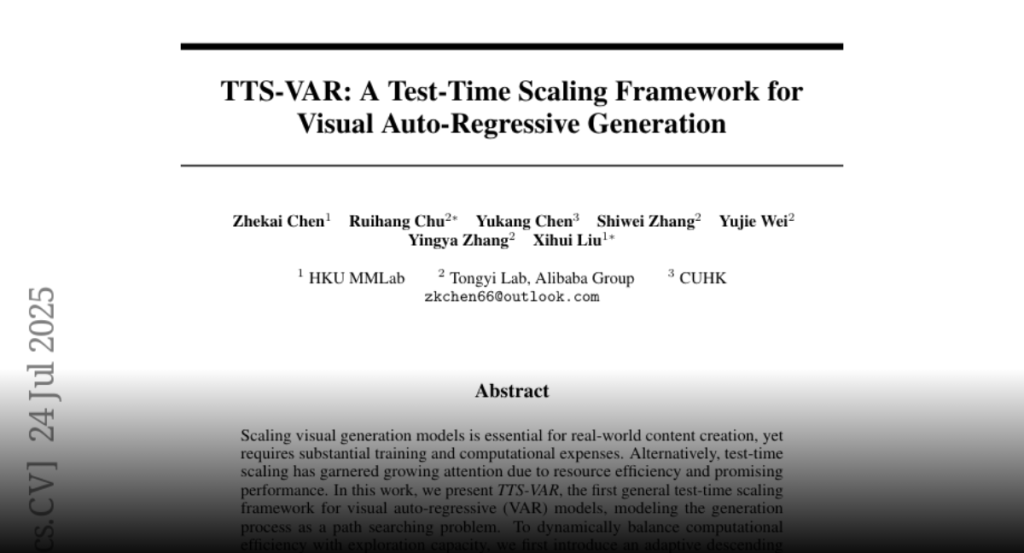TTS-VAR, a test-time scaling framework for visual auto-regressive models, improves generation quality by dynamically adjusting batch sizes and using clustering and resampling techniques.
Scaling visual generation models is essential for real-world content
creation, yet requires substantial training and computational expenses.
Alternatively, test-time scaling has garnered growing attention due to resource
efficiency and promising performance. In this work, we present TTS-VAR, the
first general test-time scaling framework for visual auto-regressive (VAR)
models, modeling the generation process as a path searching problem. To
dynamically balance computational efficiency with exploration capacity, we
first introduce an adaptive descending batch size schedule throughout the
causal generation process. Besides, inspired by VAR’s hierarchical
coarse-to-fine multi-scale generation, our framework integrates two key
components: (i) At coarse scales, we observe that generated tokens are hard for
evaluation, possibly leading to erroneous acceptance of inferior samples or
rejection of superior samples. Noticing that the coarse scales contain
sufficient structural information, we propose clustering-based diversity
search. It preserves structural variety through semantic feature clustering,
enabling later selection on samples with higher potential. (ii) In fine scales,
resampling-based potential selection prioritizes promising candidates using
potential scores, which are defined as reward functions incorporating
multi-scale generation history. Experiments on the powerful VAR model Infinity
show a notable 8.7% GenEval score improvement (from 0.69 to 0.75). Key insights
reveal that early-stage structural features effectively influence final
quality, and resampling efficacy varies across generation scales. Code is
available at https://github.com/ali-vilab/TTS-VAR.

